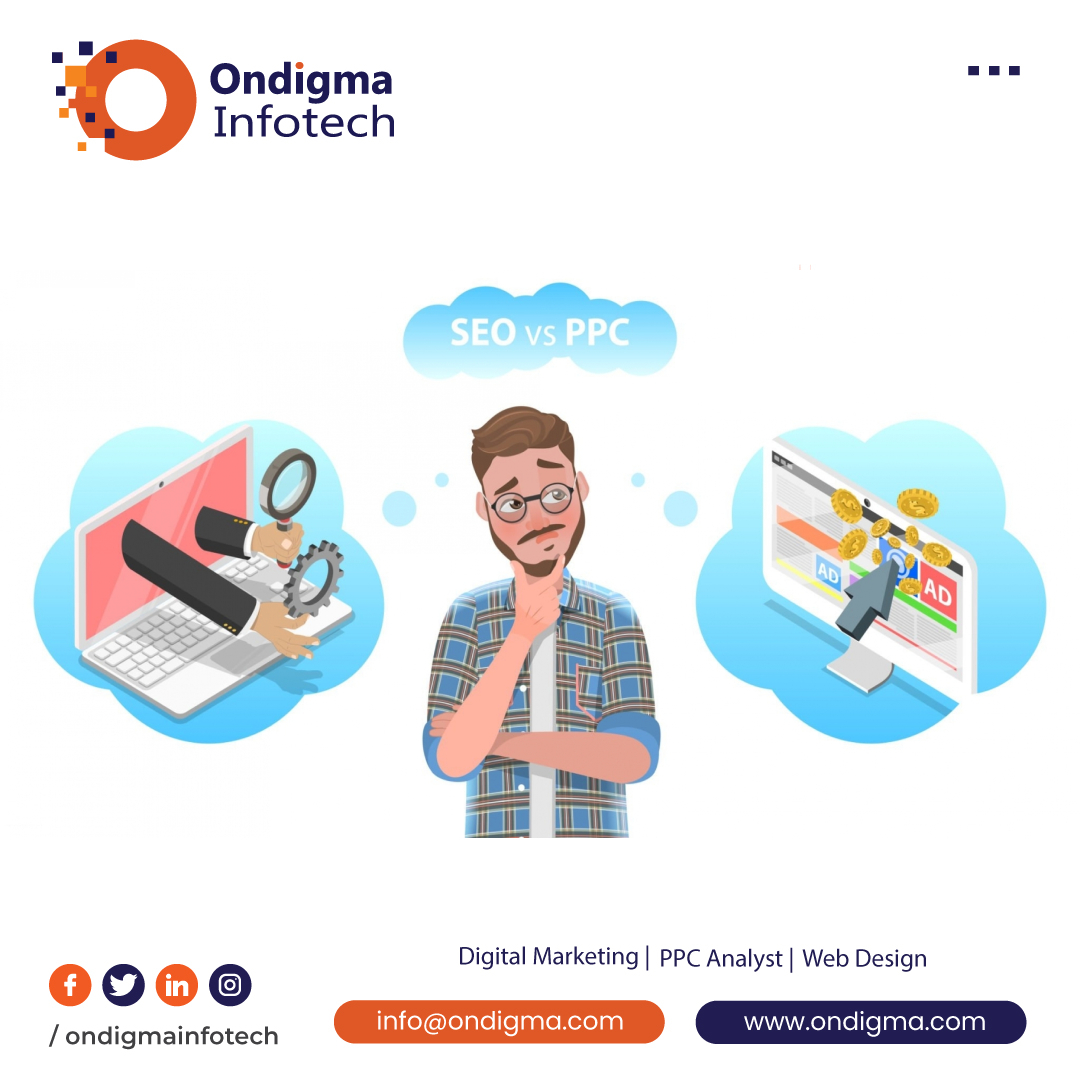
In the world of online marketing, businesses have two popular strategies to choose from: Search Engine Optimization (SEO) and Pay-Per-Click (PPC) advertising. Both methods aim to increase website visibility and drive traffic, but they have distinct differences, advantages, and disadvantages. This blog aims to delve into the characteristics, pros, cons, and benefits of an integrated SEO and PPC approach.
Definition: SEO involves optimizing your website and content to improve organic search engine rankings, without directly paying for website traffic.
Long-term results: Once your website ranks well in organic search results, it can generate traffic consistently without additional costs.
Credibility: Organic search results often receive higher trust and credibility from users.
Cost: SEO can be a cost-effective method compared to PPC advertising in the long run.
Time-consuming: Achieving and maintaining top rankings in organic search results requires continuous effort and patience.
Uncertainty: Algorithms and ranking factors frequently change, making it challenging to stay updated and adapt SEO strategies accordingly.
Definition: PPC involves placing paid advertisements in search engine results or third-party websites, paying only when users click on the ads.
Immediate results: PPC campaigns can drive instant traffic to your website and generate leads or conversions.
Control: Advertisers have complete control over ad copy, keywords, budget, and target audience.
Measurable results: Detailed analytics and reporting tools provide insights into ad performance and ROI.
Cost: PPC campaigns require a budget and ongoing spend to sustain traffic and results.
Ad blindness: Users may develop banner blindness and intentionally ignore ads, reducing their effectiveness.
Limited visibility: As soon as the ad budget exhausts, the ads disappear, potentially resulting in a sharp decline in website traffic.
Synergy: SEO and PPC can reinforce each other by targeting the same keywords, increasing visibility on search engine pages.
Test and refine: PPC campaigns provide immediate feedback on keyword performance, which can be used to improve organic SEO strategy.
Keyword expansion: PPC data can uncover new keyword opportunities for organic SEO optimization.
Target different search intents: PPC can target transactional keywords, while SEO can focus on informational keywords to capture audiences at various stages of the buying cycle.
Balance budget allocation: Integrating SEO and PPC allows businesses to allocate their marketing budget strategically between long-term organic growth and short-term paid advertising.
Both SEO and PPC have their advantages and drawbacks. An integrated SEO and PPC approach can provide a comprehensive and balanced strategy to maximize website visibility, target different search intents, achieve immediate traffic, and build sustainable organic growth. Understanding the differences between SEO and PPC and leveraging their respective benefits can help businesses achieve their online marketing goals effectively.
Leave a comment